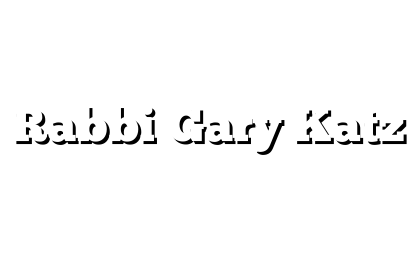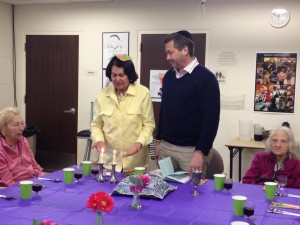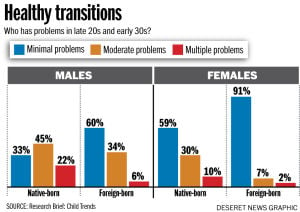I will be the first to admit: I do write about rock music a lot.
Most of the time, my focus is on performers who have either participated in the BDS movement and chosen to not perform in Israel, or those artists like the Rolling Stones who not only enthusiastically played in Israel, but who go went of their way to express an emotional connection with the people – in Mick Jagger’s case, throwing rudimentary (and not so rudimentary) Hebrew phrases at the audience like so many blown kisses. http://blogs.forward.com/the-shmooze/199585/-times-mick-jagger-spoke-better-hebrew-than-you/ .
This week, Sinead O’Connor came down with a whopping case of cold feet about performing in Israel. It turns out that she simply didn’t know that the Palestinians had urged a cultural boycott of Israel, and now has major second thoughts about playing there. Sinead is doubly wrong: first, for considering bowing out of her Israel gig, and second, because, in fact, the Palestinians are not in favor of a boycott of Israel. Duh. So, Sinead, you can stay home. Your loss.
But the biggest Jewish news in rock music this week is about Max Weinberg, the drummer for Bruce Springsteen’s E Street Band.
Max Weinberg, and his wife Becky, had donated a vacation at his villa in Tuscany as part of the fundraising auction at the Reform synagogue in South Orange – the synagogue that he grew up in and in which his family has been active over the decades.http://njjewishnews.com/article/23315/springsteen-drummer-to-support-local-synagogue They are doing so in honor of their parents, Ruth and Bert Weinberg and Jean and Dale Shick, and Max’s grandparents, Max and Celia Mindlin, who were founding members of Temple Sharey Tefilo when it was in East Orange.
And Max is going to be there at the charity event to personally auction off the prize.
Here’s one of the most successful rock drummers in recent history, who has also played in Conor O’Brian’s band. He’s a proud Jew – proud enough to come back to his “home shul” and to support them. And not only that – but to honor his parents and his in-laws in doing so.
Because honoring your parents – the very pillar of the Ten Commandments – is not only about taking care of your parents. It is that, but it is far more.
It’s something basic. Remember where you come from.
There have been many Jews in rock music. Here is a short list: Bob Dylan, Leonard Cohen, Paul Simon, Peter Himmelman, Art Garfunkel, Lou Reed, of blessed memory; Donald Fagen, Matisyahu, Amy Winehouse, of blessed memory; Joey Ramone, Gene Simmons, Billy Joel, Mark Knopfler, Lenny Kravitz, Neil Sedaka, Neil Diamond, Leslie Gore, several members of Phish, Carole King, Bette Midler, David Lee Roth, Adam Levine, Barry Manilow, Barbara Steisand, David Bromberg. I know that there are others.
But a woefully small number of them “do” anything Jewish – at least as far as I can tell. How many of them are actually connected, in some meaningful way, to the Jewish community? And to what extent does their Jewish background play a role in their music?
In that regard, here are my favorite “Jewishly” Jewish rock musicians.
Leonard Cohen: Jewish images, ideas and texts frequently make appearances in his music – so much so, that at our High Holy Day services this year in Bayonne, we will salute him on his eightieth birthday and incorporate his Jewish music into the worship experience. Check out “Who By Fire”. https://www.youtube.com/watch?v=cuUgTxgoyaI
Bob Dylan: yes, he often seems to be doing the hora on either side of the Jewish-Christian divide. But “Neighborhood Bully” is about Israel, and it is eternally relevant. “Father of Night” is prayerful. “Highway 61” retells the binding of Isaac.
Peter Himmelman: Dylan’s son-in-law and a totally observant Jew. His music is dotted with kabbalistic and biblical imagery. His song “Impermanent Things” is one of the greatest critiques of idolatry I have ever encountered. https://www.youtube.com/watch?v=an9eziYKD3A He is the real deal.
Matisyahu: Of course. Everything he sings is Jewish and bears witness to Torah. Check out “One Day.” https://www.youtube.com/watch?v=WRmBChQjZPs
Phish: They have a well-documented and often-ripped live rendition of “Avinu Malkheinu.” Awesome.https://www.youtube.com/watch?v=xP0UF_r3dkY
Paul Simon: “Silent Eyes” is about Jerusalem.https://www.youtube.com/watch?v=dLBrwvo4ZGA&list=RDdLBrwvo4ZGA#t=0 You could use it on Tisha B’Av. (But much of his other music contains Christian imagery. Jesus loves Mrs. Robinson more than she will know. As my father once asked: “How can nice Jewish boys sing that?”)
Lou Reed, of blessed memory: he was always a Jewish kid from Long Island. His song “Good Evening, Mr. Waldheim” is profoundly, angrily Jewish. https://www.youtube.com/watch?v=h0Sowv5DnB8. He destroys Jesse Jackson for his “common ground” with Farrakhan.
Barbara Streisand did “Yentl” and recorded “Avinu Malkheinu.”
But that seems to be the extent of Judaism in the rock music industry. And there are historical reasons why there has been a lack of Jewish content in rock music. Rock music is, in many ways, a descendant of African-American music – which is to say, gospel music. So, Jesus comes easily; Torah, not so much.
And then, there’s Max Weinberg.
His music isn’t particularly Jewish. But Max is particularly Jewish.
We need more Jewish rock performers like him – Jews who will stand up with and for the Jewish community, and who will play in Israel, and who will give back to the Jewish community, and who might even use Jewish images and ideas in their music.
 Rabbi Gary Katz
Rabbi Gary Katz
![Photo: "Something remarkable happened today. As I was leaving a prayer service [near the UN] for the three boys kidnapped on their way home from Yeshiva, I ran into a rally for the abducted Nigerian school girls. Having some free time, I decided to join that rally, too.</p>
<p>"Soon, [Rabbi] Seth Braunstein and I decided to run and invite Rav Avi Weiss to the rally. As I ran back to invite Rav Avi, Seth spoke with the organizers of this rally (taking place outside the Nigerian Consulate), and told them that Rabbi Weiss would be joining.</p>
<p>"They invited Rav Avi to be their final speaker. He spoke about our commitment to stand up for each other. The girls in Nigeria and the boys in Israel, he said, will never be found, unless every person in the world sees them as their brother, sister, daughter or son. G-d created man singularly, he preached in the name of the Talmud, so that no person can claim superiority over another human being. </p>
<p>"We closed by singing a Carlebach niggun [tune] together. 'Because of my brothers and friends, Because of my sisters and friends, Please let me ask, please let me sing, peace to you. This is the house, the house of the Lord, I wish the best for you' "</p>
<p>(Source: https://www.facebook.com/jordan.soffer/posts/10202381676168490)</p>
<p>#bringbackourgirlsnyc #bringbackourboys](https://fbcdn-sphotos-b-a.akamaihd.net/hphotos-ak-xfp1/t1.0-9/p403x403/10462722_10152241107328717_6550711588905954788_n.jpg)
